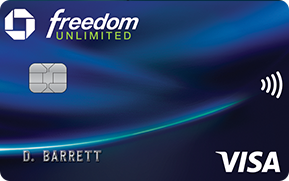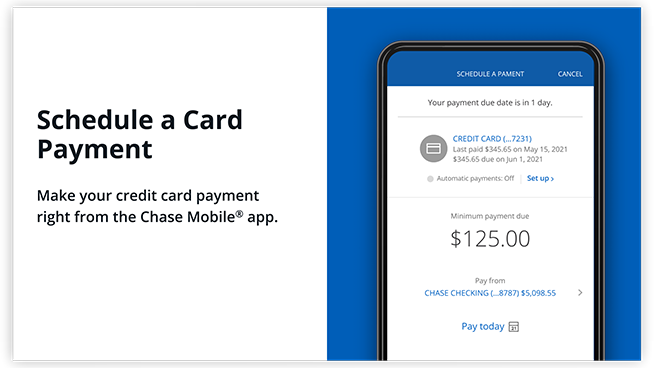Unpacking Chase Landry Net Worth: A Look At Financial Journeys And Building Wealth
Have you ever wondered about someone's financial standing, perhaps like the curiosity surrounding Chase Landry net worth? It's a natural thing, you know, to be interested in how people manage their money and what their financial picture looks like. People often look at figures like net worth as a sort of scorecard for financial success, and that's a pretty common way of thinking about it, in a way.
However, when we talk about a specific person's net worth, like Chase Landry's, it's really important to remember that this kind of information is usually quite private. Financial details, as a matter of fact, are personal and not something typically shared widely. So, while the idea of understanding someone's financial journey is interesting, getting exact numbers for individuals is almost never something you can do easily.
This article will explore the general concept of net worth, how it's calculated, and what it means for financial health. We'll also touch on how financial tools and services, like those offered by Chase, can play a part in managing and growing one's own financial well-being, because that's something many people are actually quite interested in.
Table of Contents
- Biography and Personal Details: Who is Chase Landry?
- What is Net Worth, Really?
- Calculating Your Own Net Worth: A Simple Approach
- How Financial Services Help with Wealth Building
- Strategies for Growing Your Net Worth
- Common Questions About Net Worth
- The Importance of Financial Privacy
Biography and Personal Details: Who is Chase Landry?
When people search for "Chase Landry net worth," they are often looking for information about a specific individual. It's pretty common for public figures, or even those who appear in media, to have their personal finances become a topic of discussion. However, it's important to understand that specific details about a person's net worth are almost always private. Our provided text, as a matter of fact, focuses on the services of a major financial institution, Chase, and does not contain any biographical or financial information about an individual named Chase Landry.
Because of this, we can't provide specific personal details or a detailed biography for Chase Landry here. Any figures or personal facts would be speculative and not based on reliable information. What we can do, however, is acknowledge the person of interest and discuss general aspects of how net worth is understood and managed, which is, you know, a pretty useful thing for anyone.
Personal Details: Chase Landry
| Name | Chase Landry |
| Date of Birth | Information not publicly available |
| Place of Birth | Information not publicly available |
| Occupation | Information not publicly available; often associated with reality television. |
| Known For | Specific details about public life are not widely disclosed; typically, personal financial data remains private. |
What is Net Worth, Really?
So, what exactly is net worth? Basically, it's a simple calculation that gives you a snapshot of your financial health at a particular moment. It's the total value of everything you own, which we call assets, minus everything you owe, which are your liabilities. Think of it like this: if you sold everything you own and paid off all your debts, what would be left over? That remaining amount is your net worth, more or less.
Assets can include things like cash in your bank accounts, savings, investments such as stocks and bonds, real estate you own, vehicles, and even valuable personal items. Liabilities, on the other hand, are your debts. This means things like credit card balances, student loans, car loans, mortgages, and any other money you owe to others. A higher net worth generally means you're in a stronger financial position, which is pretty obvious, right?
Understanding your net worth isn't just for celebrities or public figures; it's a really important tool for anyone looking to manage their personal finances effectively. It helps you see where you stand, measure progress towards financial goals, and identify areas where you might need to make changes. It's, like, a fundamental piece of your financial puzzle.
Calculating Your Own Net Worth: A Simple Approach
Calculating your own net worth is actually quite straightforward, and it's a really good exercise to do regularly. You just need to list out all your assets and all your liabilities. For example, your checking and savings accounts are assets. If you have a Chase checking account online, you can easily view statements and monitor activity to get these figures. Your investments, like stocks or retirement accounts, are also assets, typically.
Then, you list your liabilities. This includes any credit card balances you might have, student loans, car loans, and your mortgage. Once you have both lists, you simply add up all your assets and then add up all your liabilities. Finally, you subtract your total liabilities from your total assets. The number you get is your net worth. It's a very simple formula, but it gives you a powerful insight into your financial situation, to be honest.
Doing this regularly, maybe once a year, can help you track your progress. If your net worth is growing, that's usually a good sign that your financial strategies are working. If it's shrinking, it might be a signal to adjust your spending or saving habits. It’s a bit like taking a financial temperature check, you know?
How Financial Services Help with Wealth Building
Financial institutions, like Chase, play a significant role in helping people manage their money and, by extension, influence their net worth. They offer a broad range of products and services that make handling your finances much simpler and more secure. From everyday banking to more complex financial planning, these services are designed to help you organize your money, pay bills, save, and even invest, which is pretty essential for most people, isn't it?
Chase, for instance, serves millions of people with a variety of tools that make managing your accounts quite easy. You can manage your Chase accounts online, view statements, monitor activity, pay bills, or transfer funds securely. This kind of access is really helpful for keeping track of your money, which is, you know, a big part of financial health.
Managing Your Money with Checking Accounts
A good checking account is the foundation of managing your daily finances. Chase offers various checking accounts, letting you select the one that best fits your needs. You can learn about the benefits of a Chase checking account online, comparing different options to find what works for you. This is, like, step one for many people in getting their money organized.
With a checking account, you can set up recurring payments, pay bills, and transfer money without the hassle of writing a check or paying for postage, all from chase.com or your mobile device. This convenience helps you stay on top of your bills and avoid late fees, which can slowly chip away at your financial standing. There's also Chase Secure BankingSM, a checking account with no overdraft fees and no fees on most everyday transactions, which can really help people avoid unexpected costs, so that's a good thing.
Smart Credit Card Use for Financial Growth
Credit cards, when used wisely, can also contribute to your financial health and indirectly, your net worth. They offer convenience, security, and often rewards. You can explore all of Chase's credit card offers for personal use and business, finding the best rewards cards, travel cards, and more. Applying today and starting to earn rewards and cash back can be a nice little bonus, you know?
Managing your Chase card account online lets you pay bills, transfer money, and access secure banking services conveniently. Responsible credit card use, like paying your balance in full and on time, helps build a good credit score, which is really important for things like loans and mortgages later on. A good credit score can actually save you a lot of money over time, which, in a way, boosts your overall financial picture.
The Ease of Digital Banking
Digital banking has really changed the game for personal finance. It makes it incredibly easy to check accounts, pay friends, and even deposit checks with Chase digital banking. This accessibility means you can monitor your finances anytime, anywhere, which is pretty essential in today's busy world. Being able to quickly see your account balances or transfer funds can help you make better financial decisions on the spot, to be honest.
The ability to securely manage your money from your phone or computer means you're always connected to your financial standing. This constant oversight can help prevent issues before they become big problems, like overspending or missing a bill payment. It’s basically about having control right at your fingertips, which is a very powerful thing.
Protecting Your Assets with Insurance
While not directly part of daily banking, protecting your assets through insurance is another aspect of managing your overall financial health. Insurance products are made available through Chase Insurance Agency, Inc. (CIA), a licensed insurance agency, doing business as Chase Insurance Agency Services, Inc. Having the right insurance, whether it's for your home, car, or even life, protects your existing assets from unexpected events.
This protection means that if something unforeseen happens, your financial standing isn't suddenly wiped out. It's a way of safeguarding your net worth, ensuring that your hard-earned assets are preserved. It’s kind of like building a strong fence around your financial garden, you know, keeping it safe from sudden storms.
Strategies for Growing Your Net Worth
Building a healthy net worth takes time and consistent effort, but it's definitely achievable for most people. One key strategy is to focus on increasing your assets and decreasing your liabilities. This sounds simple, and in a way, it is, but it requires discipline. Saving money regularly is a big part of this. Setting up automatic transfers from your checking account to a savings account can make this much easier, honestly.
Investing is another crucial step. Even small, consistent investments can grow significantly over time due to the power of compounding. Learning about different investment options and starting early can really make a difference. Reducing debt, especially high-interest debt like credit card balances, is also extremely important. Every dollar you pay off reduces your liabilities and directly increases your net worth, so that's a very direct way to see progress.
Increasing your income, whether through a raise, a side hustle, or starting a business, can also accelerate your wealth-building journey. The more money you have coming in, the more you can save and invest. Finally, living within your means and avoiding unnecessary expenses helps you keep more of your money, allowing it to work for you instead of just disappearing, which is, you know, a pretty smart way to live.
Common Questions About Net Worth
Is net worth the same as income?
No, net worth and income are actually quite different. Income is the money you earn over a period, like your salary or wages. Net worth, on the other hand, is a snapshot of your financial health at a specific moment, calculated by subtracting what you owe from what you own. You can have a high income but a low net worth if you spend or owe a lot, or, conversely, a modest income but a growing net worth if you manage your money wisely. It’s basically about what you keep, not just what you make.
Why is it important to know your net worth?
Knowing your net worth is really important because it gives you a clear picture of your financial standing. It helps you track progress towards your financial goals, whether that's saving for retirement, buying a home, or simply building financial security. It also highlights areas where you might need to improve, like reducing debt or increasing savings. It's, like, a vital tool for making informed financial decisions, to be honest.
How can I improve my net worth quickly?
Improving your net worth quickly often involves a combination of strategies. You could focus on aggressively paying down high-interest debt, which immediately reduces your liabilities. Increasing your income through extra work or a new job can also boost your assets. Additionally, cutting down on unnecessary expenses and saving more can lead to quicker improvements. While there aren't any magic tricks, consistent effort in these areas can yield faster results, you know, than just hoping for the best.
The Importance of Financial Privacy
In discussions about "Chase Landry net worth" or anyone else's personal finances, it's really important to highlight the value of financial privacy. Just as Chase online lets you manage your accounts securely and monitor activity, individuals have a right to keep their financial details private. Authentication is required to login to your Chase accounts, for instance, which shows how serious financial institutions are about security and privacy. This commitment to keeping your information safe is a big deal.
Publicly speculating about someone's net worth can be misleading and, frankly, isn't always based on accurate information. Most people prefer to keep their financial lives private, and that's perfectly understandable. Focusing on your own financial journey and utilizing tools like those offered by Chase to manage your accounts, pay bills, and explore credit card offers is a much more practical and beneficial approach. Learn more about personal finance on our site, and perhaps explore how to manage your banking securely.

Hey kids, here's your chance to meet Chase from PAW Patrol - North Bay News

Compare Chase Freedom Credit Cards | Chase

Online Account Access | Credit Card | Chase.com